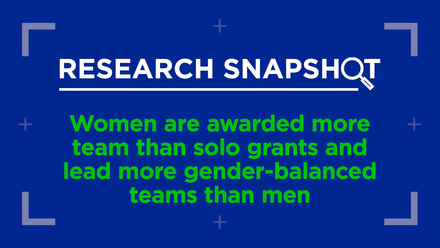Students on the frontlines: transnational student rights

As we approach the 2022 EAIE Conference and Exhibition in Barcelona, a series of Conference Conversation Starter essays are being published here on the blog to encourage us to start thinking about this year’s theme of ‘The future in full colour’. The second Conference Conversation Starter essay today asks us to consider the evolving nature of transnational university networks and their significant implications for the future of student rights.
The world is navigating turbulent times. From the Russian invasion of Ukraine to China’s Belt and Road Initiative, to the EU Global Gateway initiative – “a new European strategy to boost smart, clean and secure links in digital, energy and transport sectors and to strengthen health, education and research systems across the world” – geopolitics is dominating the global stage. In this context, international education and research cooperation face a rapidly shifting environment, where issues like ‘science diplomacy’ and ‘foreign interference’ are becoming the norm when discussing global higher education cooperation. At the same time, the astonishingly quick production of effective vaccines for COVID-19 is the result of collaboration across the global scientific community, and only global cooperation can succeed in avoiding that the climate crisis becomes a climate catastrophe.
Transnational engagement is arguably more important than ever before. This has clear implications for the higher education sector around the world generally, and specifically for the rights of students, who sit at the heart of both higher education systems and key movements advocating for change that are vital to the future of the planet.
Taking cues from global student activism
In order to survive as a species, we need more global collaboration in education and research than ever. At the same time, we need a human rights-based approach, where educational and scientific cooperation cannot be used to violate human rights in the partner countries. We also need to tap the potential of a truly globally recognised education framework: it should not matter in which part of the world you studied, but the knowledge that you hold. This is the aim of the UNESCO Global Convention on Higher Education, which as of May 2022 has been ratified by fifteen countries and needs ratification by just five additional countries to enter into force.
The role of global civil society to ensure broad social well-being is crucial, and student organisations can and must take a prominent position in this work. In this spirit, the Global Student Forum was established in 2020 as the first new global independent student organisation in seventy years, bringing together the major continental student organisations as well as several unaffiliated student networks from all over the world. The student-led campaigns for climate justice; the ratification of the UNESCO Global Convention on Higher Education; the international recognition of democratic, representative student organisations; as well as the strengthening of the dialogue and solidarity between student activists all across the world – all are examples of how students and student movement allies are demonstrating how civil society should evolve globally, in order to strengthen transnational collaboration for the greater good.
Student rights and governance in a European context
The importance of having a common (ie ‘transnational’) understanding of student rights at the European level is crucial in a moment when initiatives like the European Universities promise to mainstream internationalisation, making transnationality a structural feature of the policies enacted in higher education institutions (HEIs) and in the ordinary lives of students in the decades to come. In the future, integrated, transnational universities will have to provide students with the same rights in each of the HEIs composing a European University alliance. To achieve that, the upward convergence of student rights within these alliances (and subsequently among Europe’s higher education systems) should be student-driven, and based on established frameworks.
One example of such a framework is the Student Rights Charter, first approved by the European Students’ Union (ESU) in 2008 and again in 2021, outlining what should be a minimum set of rights for all those studying in the continent. Others include the Bologna instruments such as the Principles and Guidelines for the Social Dimension, and the fundamental values of the European Higher Education Area, which are currently being defined. The success of this new transnational dimension will depend on building a truly democratic governance framework, where democratically-elected, representative students and staff members effectively influence the decision-making and the implementation of the transnational policies and initiatives.
Transnational student rights and international students
If the first dimension of transnational student rights is having a common minimum understanding at the international level, its second dimension is ensuring that international students specifically – whether undertaking credit or degree mobility – are treated the same as their peers who are classified as ‘home students’. However, international students – especially those undertaking degree mobility – are currently subject to contrasting policies. For example, those not subject by law to the same tuition fees as national students pay higher fees to access higher education, becoming a relevant source of income especially for those HEIs which rely on tuition fees for a considerable part of their budget. Moreover, once admitted, they are rarely supported in integrating within the local society, and are sometimes seen by policy-makers as a burden.
This leads to paradoxical consequences. Where international students’ tuition fees are a relevant source of income, systems feel pressured to reduce the number of ‘less profitable’ national students, as is being discussed in the UK. In less ‘market-oriented’ systems (or where EU students, who pay the same fees as national students, are a consistent share of the international student population), the trend might be to develop policies to indirectly discourage international students from applying to higher education in their country, as is the case in Denmark.
An equitable approach to transnational student rights demands that international students be treated as part of the whole community, not as a for-profit commodity. It calls for equalising international and home student fees, and integrating international students’ cultural diversity into the body of assets of a student-centred learning experience, to the benefit of classmates. It also means developing (or supporting student organisations to develop) activities and frameworks where international and national students can meet, connect and be part of a community. An understanding of and respect for transnational student rights will foster the development of real transnational communities in our higher education systems, which in turn will create citizens and agents of change who are at ease in collaborating globally to tackle our common challenges as humans.
International educators and agents of internationalisation, in Europe and the world, have a great responsibility in the years to come. They need to navigate through a multipolar, fragmented world while preserving the openness of our societies. Further developing and enthusiastically implementing the transnational dimension of student rights – which includes treating international students as a community, not as a market – is a great tool in supporting that, and they will find a strong ally in the democratic, independent, organised student movement.
Questions for discussion
- Is your institution (HEI, government, agency) familiar with the ESU Student Rights Charter?
- How does your institution treat international students: as a market, a burden or a part of your community?
- In what ways does your institution work to integrate local and international communities under the framework of Internationalisation at Home?
- Does your institution involve the academic community (including students and their representatives) in its internationalisation policies (including in possible governance frameworks)?
- Does your institution have a strategy to foster a human-rights based approach to global educational and scientific cooperation when engaging with foreign partners?






